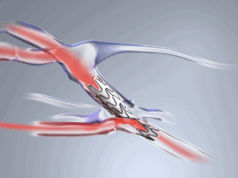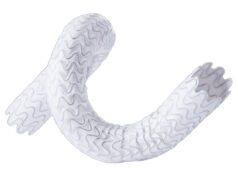 Fresenius Medical Care has reported its participation in research that it says demonstrates that the mortality rate among kidney failure patients can be significantly reduced through the utilisation of high-dose haemodiafiltration technology. Conducted by the CONVINCE consortium and led by researchers from the University Medical Center Utrecht, this international, randomised controlled trial marks what a press release calls “a crucial milestone” in comparing high-dose haemodiafiltration with standard, high-flux haemodialysis.
Fresenius Medical Care has reported its participation in research that it says demonstrates that the mortality rate among kidney failure patients can be significantly reduced through the utilisation of high-dose haemodiafiltration technology. Conducted by the CONVINCE consortium and led by researchers from the University Medical Center Utrecht, this international, randomised controlled trial marks what a press release calls “a crucial milestone” in comparing high-dose haemodiafiltration with standard, high-flux haemodialysis.
The study’s findings reveal that patients treated with high-dose haemodiafiltration experienced a remarkable 23% decrease in mortality rates compared to those treated with the more commonly used high-flux haemodialysis. “While techniques have improved over time,” the press release states, “conventional high-flux haemodialysis primarily employs diffusion to remove small molecules and fluid from the blood. In contrast, high-dose hemodiafiltration incorporates both diffusion and convection techniques to eliminate larger molecules and effectively manage fluid replacement through convection.”
Frank Maddux chief global medical officer at Fresenius, expressed enthusiasm over the study’s results, stating: “This meticulously designed and executed clinical study unquestionably demonstrates the efficacy of high volume haemodiafiltration for a significant portion of kidney failure patients. These findings have the potential to prompt significant changes in the standard treatment approach and, most importantly, contribute to reducing mortality rates among this vulnerable population in need of kidney replacement therapy.”
Lead investigator Peter Blankestijn (University Medical Center Utrecht, Utrecht, The Netherlands) commented: “Our results unequivocally demonstrate the survival benefits of utilising haemodiafiltration over haemodialysis in the treatment of kidney failure, akin to a remarkable 23% reduction in all-cause mortality. I am optimistic that haemodiafiltration can become the new standard of care.”
The trial encompassed a total of 1,360 patients across 61 centres in eight European countries and followed up for a median of 30 months. Of these, 683 patients received high-dose haemodiafiltration and 677 received high-flux haemodialysis three times a week. The rate of mortality was 7.1 deaths per 100 patient-years in the group randomised to haemodiafiltration compared to 9.2 deaths per 100 patient-years in the haemodialysis group, corresponding to a relative reduction of 23%.
The CONVINCE trial was spearheaded by researchers from UMC Utrecht in collaboration with University College London (London, UK), Charité Universitätsmedizin Berlin (Berlin, Germany), University of Bari (Bari, Italy), the George Institute for Global Health, Imperial College London (London, UK), and dialysis providers Fresenius Medical Care, Diaverum, and B Braun Avitum.
While haemodialysis serves as the standard treatment in most countries, hemodiafiltration remains underutilized in certain regions and is yet to be adopted in places like the USA, the press release concludes. Fresenius, it says, “has taken the lead in developing machines that facilitate online fluid generation and innovative techniques for delivering hemodiafiltration”.










